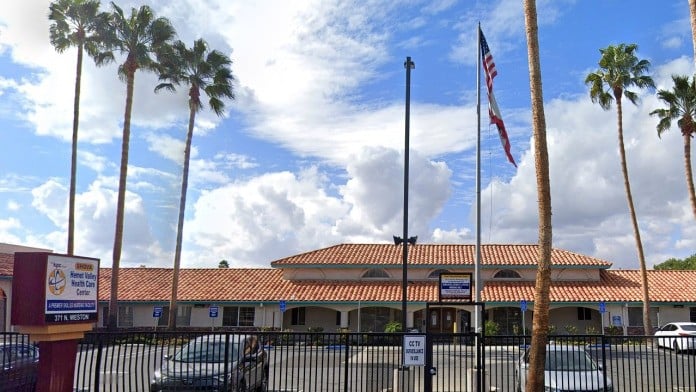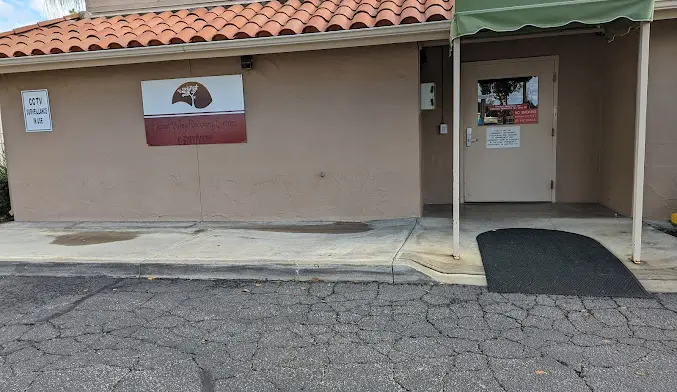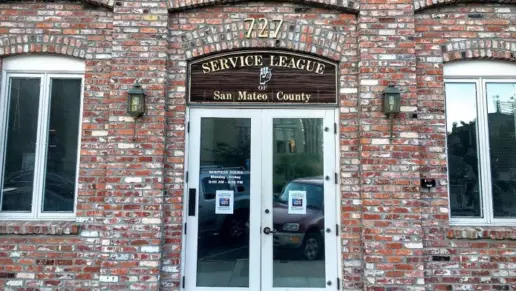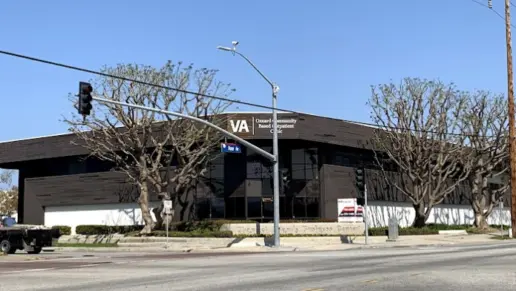About Hemet Valley Recovery Center
Hemet Valley Recovery Center & Sage Retreat, in Hemet, California, is an integrative drug and alcohol rehab offering medically supervised detox, dual diagnosis care, and inpatient, outpatient, and aftercare services. Specialized programs for young adults, families, persons with hearing impairment, seniors, LGBTQ+ persons, and persons with HIV/AIDS are available.
Hemet Valley Recovery Center & Sage Retreat is a comprehensive addiction recovery center for adults in Hemet, California. They provide medically supervised detox and inpatient, outpatient, and aftercare services, with specialized programming for seniors, young adults, LGBTQ+ persons, persons with hearing impairments, persons with HIV/AIDS, and persons with co-occurring mental health disorders.
HVRC is located in a private, home like setting on the grounds of Hemet Valley Medical Center, enabling them to provide round the clock clinical care for clients undergoing detox. FDA approved medications may be prescribed to ease withdrawal symptoms and prevent complications.
The inpatient program at HVRC enables clients to focus on their recovery in a comfortable environment with premium amenities, including an onsite meditation room and yoga studio. Residents receive intensive, trauma informed individual, group, and family therapy. Evidence based complementary therapies, including meditation, fitness therapy, and experiential therapy, are also available.
The outpatient programs are designed to promote sustained sobriety through personalized, step down care to evolve with clients’ changing needs. Levels of care include partial hospitalization (PHP), intensive outpatient (IOP), standard outpatient, sober living, and aftercare. In addition to ongoing psychotherapy and complementary treatments, clients work on developing recovery focused life skills, including coping, wellness, self care, and relapse prevention training. Aftercare services include transitional support, peer coaching, career counseling, and community, home, and workplace reintegration support.
Hemet Valley Recovery Center & Sage Retreat is accredited by CARF, the Joint Commission, and the NAATP. They are certified by LegitScript and accept private insurance, military insurance, Medicare, and self pay.
Latest Reviews
Rehab Score
Gallery


Location
Accepted Insurance




Other Forms of Payment
Private insurance refers to any kind of healthcare coverage that isn't from the state or federal government. This includes individual and family plans offered by an employer or purchased from the Insurance Marketplace. Every plan will have different requirements and out of pocket costs so be sure to get the full details before you start treatment.
Self-pay involves paying for treatment out of your own pocket. You can use savings or credit, get a personal loan, or receive help from family and friends to fund your treatment. If you don't have insurance or your insurance plan doesn't cover a specific program, self-pay can help ensure you still get the care you need.
Medicare is a federal program that provides health insurance for those 65 and older. It also serves people under 65 with chronic and disabling health challenges. To use Medicare for addiction treatment you need to find a program that accepts Medicare and is in network with your plan. Out of pocket costs and preauthorization requirements vary, so always check with your provider.
Military members, veterans, and eligible dependents have access to specific insurance programs that help them get the care they need. TRICARE and VA insurance can help you access low cost or no cost addiction and mental health treatment. Programs that accept military insurance often have targeted treatment focused on the unique challenges military members, veterans, and their families face.
Addiction Treatments
Levels of Care
Treatments
The goal of treatment for alcoholism is abstinence. Those with poor social support, poor motivation, or psychiatric disorders tend to relapse within a few years of treatment. For these people, success is measured by longer periods of abstinence, reduced use of alcohol, better health, and improved social functioning. Recovery and Maintenance are usually based on 12 step programs and AA meetings.
Drug rehab in California teaches participants constructive ways to stay clean and sober. Treatment revolves around helping individuals stop using the substance they are addicted to and learn healthy habits to avoid relapse.
Many of those suffering from addiction also suffer from mental or emotional illnesses like schizophrenia, bipolar disorder, depression, or anxiety disorders. Rehab and other substance abuse facilities treating those with a dual diagnosis or co-occurring disorder administer psychiatric treatment to address the person's mental health issue in addition to drug and alcohol rehabilitation.
A combined mental health and substance abuse rehab has the staff and resources available to handle individuals with both mental health and substance abuse issues. It can be challenging to determine where a specific symptom stems from (a mental health issue or an issue related to substance abuse), so mental health and substance abuse professionals are helpful in detangling symptoms and keeping treatment on track.
Opioid rehabs specialize in supporting those recovering from opioid addiction. They treat those suffering from addiction to illegal opioids like heroin, as well as prescription drugs like oxycodone. These centers typically combine both physical as well as mental and emotional support to help stop addiction. Physical support often includes medical detox and subsequent medical support (including medication), and mental support includes in-depth therapy to address the underlying causes of addiction.
Programs




Clinical Services
Cognitive behavioral therapy in California is a method that therapists often use for the effective treatment of substance use disorders. It is based on the principle that substance abuse stems from unhelpful ways of thinking and patterns of behavior, which can be changed by helping the individual learn better ways of coping.
While participating in dialectical behavior therapy in California, you'll focus on four key areas of skill development: mindfulness, interpersonal effectiveness, emotion regulation, and distress tolerance. Treatment includes weekly individual and group sessions.
Group therapy is any therapeutic work that happens in a group (not one-on-one). There are a number of different group therapy modalities, including support groups, experiential therapy, psycho-education, and more. Group therapy involves treatment as well as processing interaction between group members.
In individual therapy, a patient meets one-on-one with a trained psychologist or counselor. Therapy is a pivotal part of effective substance abuse treatment, as it often covers root causes of addiction, including challenges faced by the patient in their social, family, and work/school life.
For clients who are struggling with ambivalence toward change, motivational interviewing in California can help strengthen their commitment to change. Using a conversational method, the therapist helps you explore your motivations and empowers you to make the changes you desire.
Trauma therapy addresses traumatic incidents from a client's past that are likely affecting their present-day experience. Trauma is often one of the primary triggers and potential causes of addiction, and can stem from child sexual abuse, domestic violence, having a parent with a mental illness, losing one or both parents at a young age, teenage or adult sexual assault, or any number of other factors. The purpose of trauma therapy is to allow a patient to process trauma and move through and past it, with the help of trained and compassionate mental health professionals.
The goal of couples therapy in California is to strengthen the couple's relationship. The therapist may take one or more approaches to counseling which may include the Gottman method, emotionally focused therapy, behavioral therapy, and psychodynamic couple's therapy.
At Hemet Valley Recovery Center and Sage Retreat they understand and acknowledge that the whole family is affected in the disease of addiction. In order to address addiction as a family disease, they recommend that as many family members as possible participate either within their Three Day Intensive Family Week or their Weekly Family Groups. Both types of family groups address family members' feelings of confusion, anger, guilt and stress and capitalize on the love and caring that the family has for their loved-one. Family members have an opportunity to listen to other family members’ experiences, while also being able to share their own. This process allows families to develop a bond with each other and move away from feelings of isolation and helplessness. Family members are able to examine the feelings and behaviors they are personally experiencing which are non-sustainable and unhealthy for both themselves and their chemically dependent loved-ones.
While in rehab treatment, you may work on developing various life skills to help you in long term recovery. These may include resilience, interpersonal skills, and self awareness. The focus will be on developing healthy habits for self care and relationships so you have the skills you need to manage day to day life.
Experiential therapy is a form of therapy in which clients are encouraged to surface and work through subconscious issues by engaging in real-time experiences. Experiential therapy departs from traditional talk therapy by involving the body, and having clients engage in activities, movements, and physical and emotional expression. This can involve role-play or using props (which can include other people). Experiential therapy can help people process trauma, memories, and emotion quickly, deeply, and in a lasting fashion, leading to substantial and impactful healing.
Amenities
-
Residential Setting
-
Private Rooms
Accreditations

The Commission on Accreditation of Rehabilitation Facilities (CARF) is a non-profit organization that specifically accredits rehab organizations. Founded in 1966, CARF's, mission is to help service providers like rehab facilities maintain high standards of care.
CARF Accreditation: Yes

LegitScript has reviewed Hemet Valley Recovery Center as part of their certification program, and has determined that it meets the LegitScript standards for legality, safety and transparency.
LegitScript verified in January 2017

State Licenses are permits issued by government agencies that allow rehab organizations to conduct business legally within a certain geographical area. Typically, the kind of program a rehab facility offers, along with its physical location, determines which licenses are required to operate legally.
State License: California
License Number: 250000145

The Joint Commission, formerly known as JCAHO, is a nonprofit organization that accredits rehab organizations and programs. Founded in 1951, the Joint Commision's mission is to improve the quality of patient care and demonstrating the quality of patient care.
Joint Commission Accreditation: Yes

The National Association of Addiction Treatment Providers (NAATP) is a professional association that represents organizations in the field of addiction services. Founded in 1978, NAATP's mission is to advance addiction services and ensure that high-quality addiction treatment is available and accessible.
NAATP Member: Yes
Contact Information
371 North Weston Place
Hemet CA, 92543











